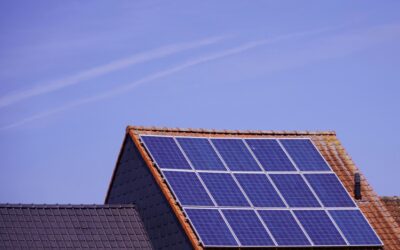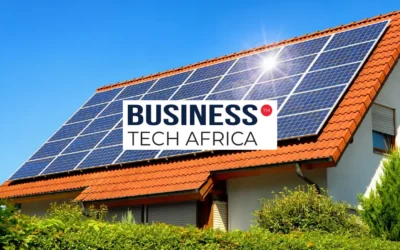In your opinion, how does the integration of smart devices with solar technology contribute to overall energy efficiency in residential homes?

Firstly, it is important to understand how solar technology contributes to overall energy efficiency in residential homes. Foremost in most South African consumers’ minds is the reduction in electricity bills that solar power can provide. According to an economic bulletin published by the South African Reserve Bank (SARB), Eskom’s electricity tariffs have increased by around 450% since the start of loadshedding in 2008, a figure that exceeds inflation by a substantial margin. The use of solar energy reduces the need for electricity from the grid, leading to significant savings on energy bills. Solar power also boosts a home’s energy independence by enabling homeowners to produce their own electricity, thereby reducing dependence on the national grid and safeguarding against future tariff hikes. In addition, residential solar power supports the broader goal of decreasing the country’s dependence on fossil fuels, a major contributor of the greenhouse gas emissions associated with climate change. The integration of tech such as smart geyser devices, when integrated with solar solutions, can secure significant cost savings for consumers as a geyser is typically responsible for around 50% of a household’s electricity bill.
Anticipated Challenges in Mass Technology Integration
According to the Department of Public Enterprises, by the end of August 2023, solar panels capable of generating 4,481 megawatts had been installed in private use, at around 2,500 megawatts more than in 2022. One of the major challenges to the mass adoption of rooftop solar power is the initial capital costs required to buy a solar system outright, which excludes many South African households from benefitting from solar power and the associated cost savings. In the 2023 Budget Speech, South Africa’s finance minister introduced a tax rebate for the financial year to incentivise individual households to go the solar route, and while this was a step in the right direction, it excluded households that opt to install solar on a Solar-as-a-Service or rent-to-own basis. As for the integration and mass adoption of technologies such as solar-boosted residential heat pumps (a new offering being extended to existing Versofy clients), the same challenges are likely to persist. One solution is South African consumers having access to innovative pricing options that can cater to a wider variety of individual household needs and budgets. Something we at Versofy have worked hard at ensuring with a variety of product and pricing options – take a look right here.
Since 2021, Versofy SOLAR has installed over 50,000 solar panels in over 4,200 homes across South Africa, generating over 35 million kWh annually. Installing a solar system is always a significant decision, making it essential to choose a knowledgeable and supportive solar provider who has an established track record and expertise, from recommending the right solar system and installation to post-installation support.
Do you have any insights on the performance of solar-integrated smart geysers?
As geysers account for approximately 50% of a household’s electricity bill, a solar-integrated geyser can ensure households enjoy the same hot water for a third of the price. By way of an estimated savings example: If a household’s electricity bill is R2000, a solar-integrated geyser could result in a monthly cost saving of R660, which equates to
around R45,000 over a five-year period. At the same time, an individual household would be reducing their total carbon emissions by about 19 tonnes over five years. Beyond the immediate cost savings, having solar power and/or a solar-integrated geyser adds to the resale and rental value of a property. While the exact resale value of a property depends on a number of factors, enhancing a property’s sustainability credentials not only reducing running costs, but also increasing its market appeal over the long term.
Where do you see the future of this ecosystem headed?
Blending of technology with solar energy is changing how we view home efficiency and self-reliance. In South Africa, blessed with abundant sunshine as it is, the future is renewable electric energy. This vision, which builds on the trends of the last 50 years, is one which foresees electric vehicles in every garage and solar panels on every roof. Renewables will become more cost-effective than fossil fuels, and not only because fossil fuels themselves are becoming more expensive to extract, refine, and transport. Advancements in technology reduce prices while improving the overall end product. As more people embrace and adopt solar technologies, renewable energy becomes more affordable for everyone. In general, the renewable energy sector benefits from economies of scale. As the production of renewable energy technologies ramps up, the cost per unit ultimately decreases.
Innovative South African companies have a crucial role to play in developing the infrastructure and technology that support a mass transition to renewable energy. By eliminating waste, optimising usage, and ensuring fair distribution, there is an opportunity to create a marketplace that offers attractive returns for investors and provides access to renewable, sustainable energy for those who choose not to invest directly. The beauty of such a model is that one doesn’t need to have solar panels installed to benefit from sustainably generated energy. The energy ecosystem of the
future is built around smart power utilities that facilitate access to clean energy for all.
Also Read: SOLAR ENERGY – NEWS FROM THE WORLD OF SOLAR
How can government better support the adoption of both technological solutions?
Governments around the world have introduced policies and incentives to encourage the adoption of renewable energy. These include tax breaks, subsidies, and feed-in tariffs that make renewable energy projects more financially viable both on a national scale and at an individual household level. Government incentives can play a crucial role in driving solar energy adoption, provided they accurately reflect the current economic reality in the country and are inclusive of as many households as possible. Where government cannot incentivise the adoption of solar technologies, it should empower private businesses to step in with products, solutions and pricing structures that stimulate market demand.
Click here to get heating and cooling tips
Future Trends in SA’s Solar Energy Sector
Net metering policies that allow solar system owners to sell excess electricity generated back to the grid are developments to watch. Net metering will soon be adopted by the City of Cape Town and may be followed in other major metros across the country. This will further encourage businesses and individuals to invest in solar and its associated technologies.
In addition, the Internet of Things (IoT), to optimise home energy use is being taken more seriously than ever before. As smart home gadgets and apps become more common, we’re seeing new, exciting developments that are tailored to improve daily lives and help households save money. Apps that accompany solar systems are a great foundation on which other technology can be integrated, including ways to manage and monitor a household’s water use for example. Our homegrown Versofy HOME app is a prime example of this, and our investment in the future. Easily downloadable for Apple or Android devices.
Ross, do you have any other industry insights you’d like to share?
Entry into the home through solar technology represents the initial step towards a broader ambition. The overarching goal within the industry should be to foster a sustainable, economical, and efficient environment for consumers, where waste is minimised, and energy use is optimised. Forward-thinking companies are now extending their offerings beyond mere solar installations, providing value-added services that optimise a home’s energy consumption and solar energy utilisation. The longer-term vision is to reach a point where homes equipped with solar solutions are more
economically viable than those without, thereby driving the country towards a more equitable and sustainable future.
Sound good?
Click here to get quick and easy solar financing pre-approval with Versofy Solar today!
Also Read: A NEW ERA OF HOME EFFICIENCY FOR SOUTH AFRICAN HOUSEHOLDS



